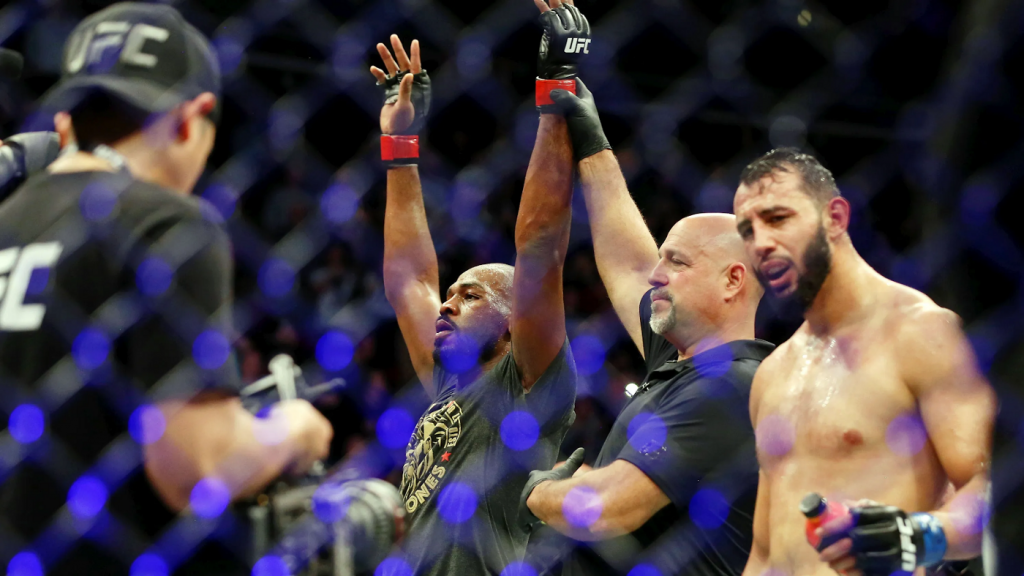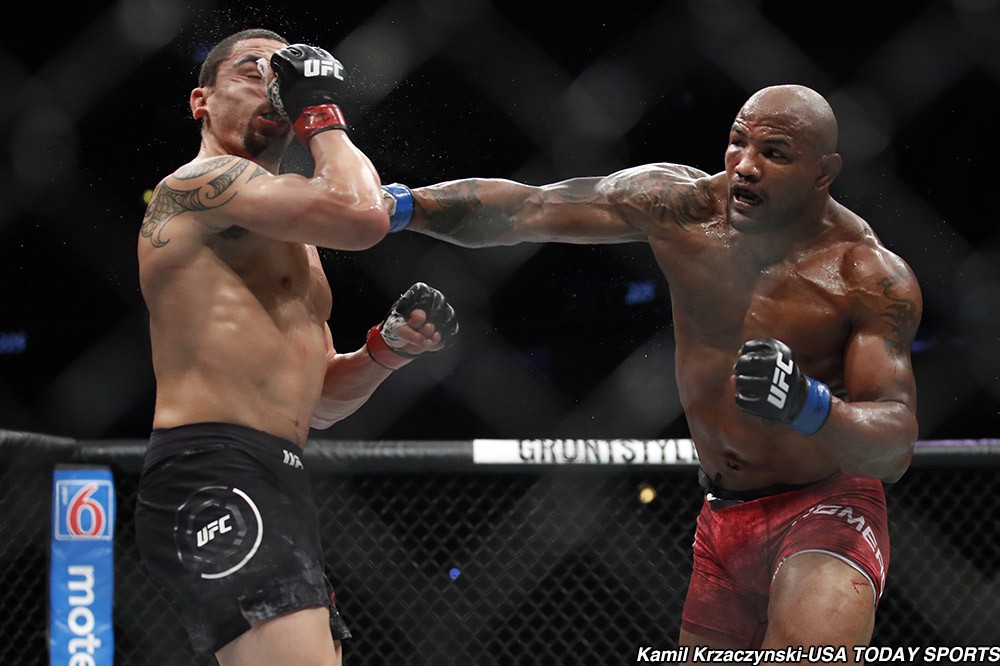UFC Judging: Time for a Change?
The UFC’s scoring system is far from perfect. Here’s how it can be improved.

By: Jack Zampillo (@Jack_Zampillo15) — February 26th, 2020
Following Jon Jones’ controversial decision victory over Dominick Reyes at UFC 247, talks have circled the scoring system and the judges selected to score the bouts. Dominick Reyes stepped into the octagon and presented Jon with his toughest test since Alexander Gustafsson at UFC 165. Reyes did more than exceed expectations and had Jon’s number for most of the bout. Unfortunately for Dom, Jon’s hand was raised, but not without question. When the final bell rang, I along with many, thought there was a new king of the 205ers. I was confident that Jon Jones had finally been defeated. With the judge’s scorecards and general public’s opinions not coinciding, it brought to light a question that has not been particularly prevalent until now: Is it time for a change?
Let me enlighten you on two solutions that have the ability to fix the continuous problem that arises from judges’ decisions: Standardized training for judges, and an open scoring system. Before I dive in, for those of you who do not know how a fight in the UFC is supposed to be scored, I recommend briefing the system that is currently in place.
One of the few problems with the Ultimate Fighting Championship is its use of inexperienced judges. The judges that are selected to score bouts are not determined solely by the UFC. Depending on the state that a card is in, the local athletic commission tells the UFC which judges will be ringside. However, it can’t and shouldn’t be that simple.
Every single mixed martial arts fighter puts their health on the line when they step into the cage. Those who judge fights should be experienced and knowledgeable. According to an article by Ariel Helwani, he recently spoke to a “highly respected commissioner” who told him that there are currently only 14, yes FOURTEEN, competent referees and judges in MMA. Think about that for a second. We are talking about a sport that is rapidly growing, and we’re going to put the officiating and scoring in the hands of 14 individuals? Alter the criteria in any way, make it as fair as possible, but if there are individuals who don’t know what they are doing, the system doesn’t matter.
Enter the idea of standardized training. Considering the fact that the UFC has little control over who is judging their fights, I believe it is imperative that the organization works with the athletic commissions to ensure that selected judges have MMA experience. As a fan of the sport, I would feel a lot more comfortable with judges knowing what they’re doing.

So, what incentives would the UFC have to present to athletic commissions in order to get them on board? Let me remind you, this game is just as much about business as it is about fighting. The UFC is a multi-billion dollar company that has support from every state in America. Making a change of this magnitude requires a lot of support. If the sport doesn’t evolve, neither will the fan base. As we all know, money talks. I would love to sit here and tell you a change like this can come from the willingness to improve a sport. However, that’s just not how these things work. Throw a few extra zeroes at the athletic commissions, create a training regimen, have certain requirements for judges, and they’d have something to build on. Sure, there’d be a lot of things that would have to fall into place in order for something like that to happen, but the cost is worth the reward. It cost the UFC a lot of time and money trying to get the New York State Athletic Commission to allow events to be held there. High cost, but look at the reward. Hell, a $50,000 belt that didn’t even need to be created was presented there. The event that turned into the highest gate in UFC history was held there.
The UFC is a brand that is trying to grow and gain mainstream relevance around the world. Training judges is a key piece to that puzzle. The way that I see a fight can be different than how the guy next to me sees it. There’s nothing wrong with that. The problem does not lie in the difference of opinions. It lies in the level of knowledge throughout the community of MMA judges. Knowledge is power.
The Case For an Open Scoring System
There is only one sport where athletes and coaches are unaware if they are winning or losing in the midst of competition. You guessed it: MMA. My question is, why? The idea of open scoring in mixed martial arts is one that I have been pondering the past few days. Implementing a system like this would not only be a beneficiary to the fighters, but also the fans. Here is how this system would work: After every 5 minutes, judges are to score the previous round, as normal. Once the judges’ scores are in, they are shown on the big screen and the fighters, along with their corners, are notified of how the previous round was scored. Simple, right?

When I watch a fight, I score each round using the criteria the judges follow. That’s me, an MMA junkie. I know how to score a fight. However, there are hundreds of thousands of people who are watching for the thrill of the sport, not solely to score it. Imagine watching a basketball game with no scoreboard. It just doesn’t make sense. Knowing how a contest is being scored will not only provide fans with excitement in between rounds, but will also help the “casual” fan to understand the game better. This is a system that can and will result in expanded knowledge of the sport.
The Ultimate Fighting Championship is a company that is supposed to take care of its fighters and ensure that they are happy with the company that they work for. Installing a fighter-friendly open system would not only make the combatants and coaches happy, it would also alter the way they perform. The Jones-Reyes fight is a perfect example of why open scoring is a good idea. Dominick Reyes went into the fourth round confident that he was up 3 rounds to 0 in that fight. So, as any smart fighter would, Dominick reigned in his output. All he had to do was not get finished, and he was the new Light Heavyweight champion of the world.
Obviously, this was not the case. Two out of the three judges gave round 2 to Jones. What if Reyes knew that he had to do more than just stay in it? Putting an open system in place will give the losing fighter more of an incentive to finish a fight, and allow the winning fighter to improve their gameplans. Imagine a world where a fighter is losing: Both he and the crowd know a finish is needed for them to win. That’s exciting. Perhaps you’re thinking, “if a fighter knows they’re winning, they can just run away from the fight to ensure they win!” Let me remind you, The UFC’s rulebook does not allow for that. Running away from engagement causes a point deduction. With the rules in place and some controversies that have recently transpired, it is hard to find a downside to the open scoring proposal. It’s time for a change, people. Dana, make it happen.
The content exhibited on this site, whether visual, electronic, or in writing, shall not be republished and/or rebroadcast without the specific written permission of Rising Young Minds and/or Scraptitude, Nerdcraft Nation, The PubSquare and/or guest contributor.



